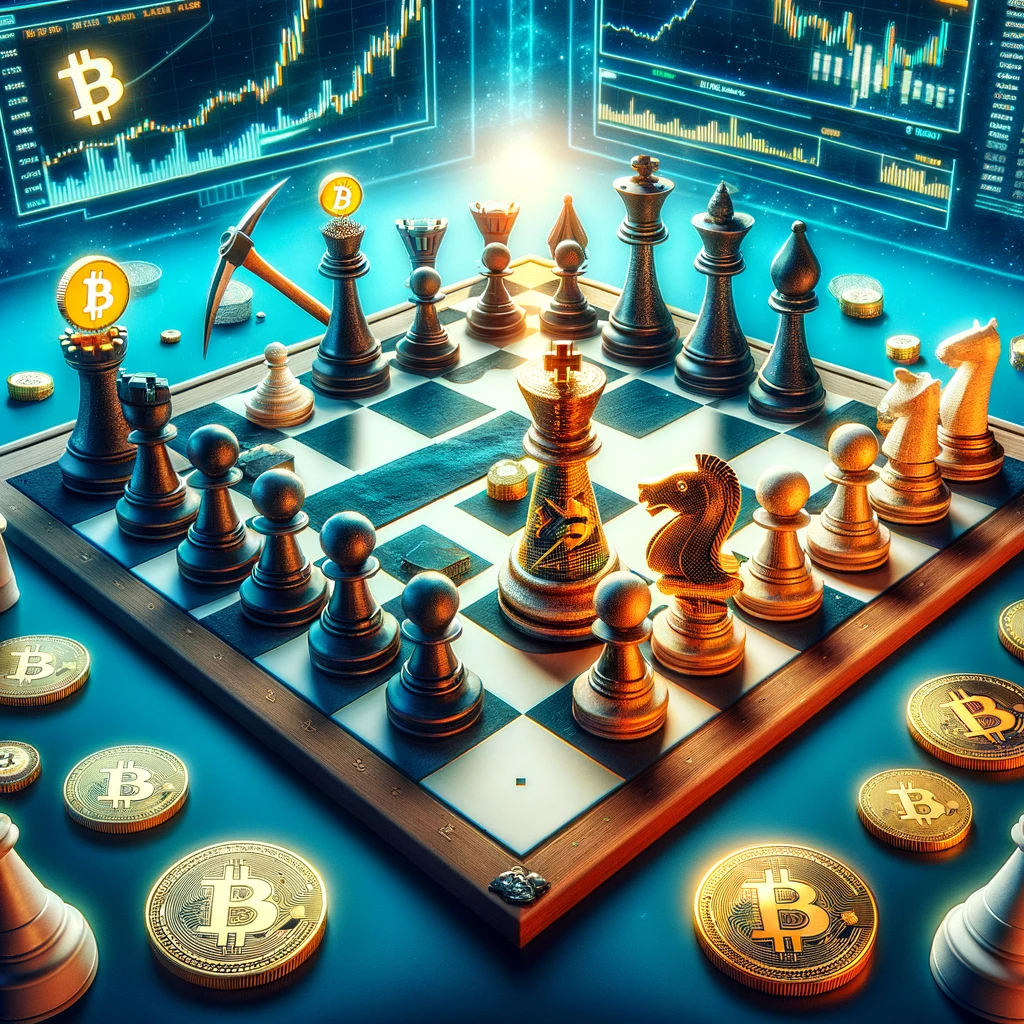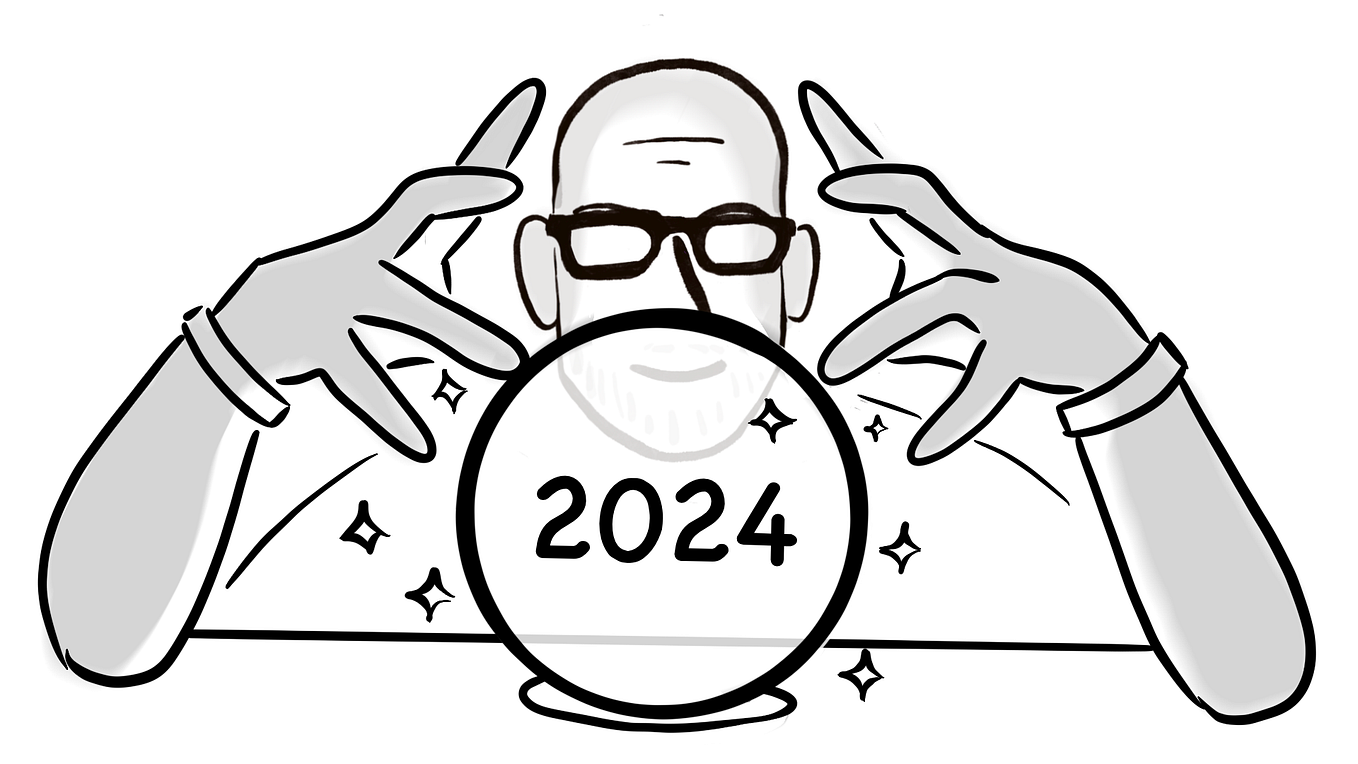How Bitcoin Is Like The Game Of Chess
 Chess was invented 1500 years ago, Bitcoin was invented less than 20 years ago; how are these distant inventions connected? Bitcoin is a revolutionary technology that is worth understanding as much as the classic game of chess. There are many foundations and fundamentals that have propelled Bitcoin to what it is today. These core concepts are easy to misinterpret and skew off the wrong context. To simplify, it is helpful to draw similarities with a well know set of principles, chess in this example.
Chess was invented 1500 years ago, Bitcoin was invented less than 20 years ago; how are these distant inventions connected? Bitcoin is a revolutionary technology that is worth understanding as much as the classic game of chess. There are many foundations and fundamentals that have propelled Bitcoin to what it is today. These core concepts are easy to misinterpret and skew off the wrong context. To simplify, it is helpful to draw similarities with a well know set of principles, chess in this example.
1 — Immutable Design:
Just like the enduring rules of chess, Bitcoin’s fundamental design is resistant to inconstant changes with the protocol. This immutability is crucial to its integrity. Bitcoin can’t be casually updated like a software update on an Apple iPhone or Google web application, it has core rules. Chess originated from a game called Chaturanga, which was similar to what is played today. Prior to the growth of chess in Europe, it was played with many different variations and rules. It eventually evolved into the modern gameplay that consists of accepted rules, regulation gameboard, predictable pieces, starting positions, movement patterns, and what conditions need to be met to win the game. If any of these founding principles change, we have a new variation, an updated version that is incompatible with the previous. This story contains hints of familiarity to the Bitcoin story. The Bitcoin network consists of almost 17,000 nodes continually communicating. Relaying the latest blocks, transactions, and verifying the integrity of the network state. Its fundamental rules are consistent and unchanged since inception akin to the static rules of chess. If somebody would like to change the rules in a way incompatible to the stipulations in place, they could no longer talk to the other participants in the network, which is the equivalent of starting a separate game. Litecoin, Dogecoin, and Bitcoin Cash are a few examples of players inventing alternative games that have different rules.
The Bitcoin network consists of almost 17,000 nodes continually communicating. Relaying the latest blocks, transactions, and verifying the integrity of the network state. Its fundamental rules are consistent and unchanged since inception akin to the static rules of chess. If somebody would like to change the rules in a way incompatible to the stipulations in place, they could no longer talk to the other participants in the network, which is the equivalent of starting a separate game. Litecoin, Dogecoin, and Bitcoin Cash are a few examples of players inventing alternative games that have different rules.
Chess, like Bitcoin, is not a breeze to change. Picture a player proposes the idea to adjust the size of the board on which the game is played. The player imagines it would be better to play it on a board twice the size, however instead of creating a new variant of the game; The players goal is to make every chess player adopt his new method of gameplay. It would be easy enough to convince some of his friends and then play together with them, but convincing the entire chess player community would be practically impossible. Without a central power enforcing the change of the rule, this is undoable. Such a power does neither exist in the world of Bitcoin nor chess. 2 — Adaptive Nature:
2 — Adaptive Nature:
Bitcoin is not a sitting duck. While it is resistant to harmful modification it is not oblivious to necessarily development. Bitcoin software is continuously being tried and tested by open source developers.
It is even possible to enforce new rules through user activated soft-forks as long as they are not in conflict with already existing rules.
Chess progressed in the 15 century, with the added double-square pawn move at the start of the game and the “en passant” rule, both adopted by chess players. This progress did not alter fundamentals like the board size, the number of pieces, their general abilities, or the winning condition. In the match of two players where one has adopted the new rule, but the other has not, they can still resort to original game conditions.
The Bitcoin Segregated Witness(SegWit) upgrade from 2017 can be assessed comparatively. Proposed by developers as a way to improve Bitcoin scaling, an improved format for transactions was introduced, taking up significantly less space in a block. The new rule/upgrade was eventually adopted as the majority of users updated their software to include the new rule, even so, a participant could still run a node without this rule and would be included in the network.
3 — Decentralization:
No governing authority can control or dictate direction or rules in Bitcoin or chess. Both have pillars of self-sovereignty baked in. Common belief in Bitcoin is “Not your keys, not your coins.” Chess is a game of self sovereign strategy. This trustless nature is inherent to both ecosystems, promoting an environment where innovation and strategy can flourish organically. In chess, it allows for the emergence of diverse playing styles and strategies, enabling players to engage in intellectual combat on an even playing field. The game’s integrity is protected not by an overseeing body, but by the shared understanding and adherence to its rules by its global community.
Bitcoin’s lack of central governance ensures that its users retain financial autonomy free of censorship and corruption. The network’s consensus-driven approach to validation and ledger maintenance places the power in the hands of its users, rather than in a centralized institution. This not only enhances security — removing a single point of failure — but also reinforces equity, as each participant in the network has an equal say in its operation.
Decentralization is a fundamental philosophy that reflects a commitment to empowering individuals. It’s a direct challenge to the underpinnings of monetary fascism, offering a new paradigm where ownership sovereignty is returned to the individual.
4 — Skill Development:
A mind can sharpened on both the board and the blockchain. Both require and maintain mental discipline. Each move on the chessboard demands profound analysis, anticipation of an opponent’s strategies, and meticulously planning. It’s a mental workout that utilizes critical thinking and problem solving. Bitcoin is a comprehensive system that includes complex economic concepts, cryptography, and mathematics. Bitcoin encourages a technical acumen that goes beyond the surface-level understanding of digital transactions. It is important to learn about the security protocols that keep the network safe, the mining process that validates each transaction, and the optimal balance of network consensus that keeps the system running smoothly. Mastering the skill of Bitcoin and Chess can take a lifetime.
5 — Property Protection:
The essence of defense in chess lies in the protection of one’s pieces, each move calculated to mitigate risk and fortify one’s position on the board. This strategic safeguarding is critical to not only preserving the integrity of one’s army but also to securing the path to victory. In the realm of Bitcoin, it embodies the preservation of one’s energy. Hodlers must navigate a landscape rife with potential threats, from hacking attempts to fraudulent schemes(ponzinomics). Just as a chess player must anticipate threats and position their pieces to protect their king, Bitcoin users must employ robust security measures to protect their seed phrase. The implementation of strong cryptographic practices ensures that one’s Bitcoin holdings remain secure, just as a well-positioned bishop or rook shields the king from attack.
Understanding Bitcoin’s multi-layered security protocols is like the complex layers of defense in a game of chess. Setting up a defense such as two-factor authentication, hardware wallets, and secure private key management equates to developing a firm defensive strategy on the chessboard. Each layer adds a barrier between one’s assets and potential aggressors, creating a digital fortress around what is of value. Mastery in both fields is defined not only by the ability to advance but also by the capacity to defend, uphold, and protect what is rightfully one’s property.
6 — Global Accessibility: The allure of chess has long transcended the confines of local play, spreading its intellectual battlefield across continents and cultures. Its universal set of rules and challenge of strategic competition have made it a lingua franca of the mind. Bitcoin’s interruption has facilitated a new era of financial interaction, unshackled by the geopolitical and economic barriers that often constrain traditional currencies.
The allure of chess has long transcended the confines of local play, spreading its intellectual battlefield across continents and cultures. Its universal set of rules and challenge of strategic competition have made it a lingua franca of the mind. Bitcoin’s interruption has facilitated a new era of financial interaction, unshackled by the geopolitical and economic barriers that often constrain traditional currencies.
The borderless nature of Bitcoin and chess is a testament to their ability to unite individuals with a common interest, regardless of their location. In the world of chess, players from disparate corners of the globe can converge on online platforms to engage in battles of wits, sharing in the timeless joy of the game. Bitcoin mirrors this accessibility, enabling seamless transactions between users from different countries with unprecedented ease. Its decentralized framework operates on a global scale, allowing anyone with internet access to participate in the network.
This universal accessibility has been a driving force behind the widespread popularity and adoption of both chess and Bitcoin. For chess, international tournaments broadcast online have captivated audiences worldwide, inspiring a new generation of players. For Bitcoin, its global reach has facilitated the emergence of a true hedge against a the instability of a nation’s currency or central bank. The widespread adoption reflects a collective human endeavor to connect, compete, and collaborate in a world that increasingly values digital and intellectual engagement over geographic proximity.
7 — Community and Network:
The vitality of both the chess and Bitcoin communities is rooted in their cooperative and interactive nature. In chess, clubs and tournaments bring enthusiasts together, fostering camaraderie and competition, while also facilitating the sharing of strategies and experiences. The Bitcoin network thrives on the collective efforts of its participants. Miners secure the network and validate transactions, businesses and media educate on its value properties, and developers continuously innovate, enhancing the technological capabilities of the community. This creates a dynamic ecosystem, analogous to the ever-evolving world of chess, where each player’s move contributes to the game’s progress and complexity. The strength of these communities lies in their ability to adapt, learn, and grow together, reflecting a shared commitment to their respective fields.
Bitcoin and chess, though born out of different historical contexts, exhibit remarkable resemblance in their structure, strategy, and community dynamics. These parallels shed light on the intricate design and enduring significance of Bitcoin. It’s a modern incarnation of chess — a game that has captivated minds for centuries, captivating and safeguarding the time and energy of individuals. Understanding these connections provides deeper insights into the essence of Bitcoin, revealing it as a technological marvel that stands alongside the classic game of chess in its revolutionary impact.
Thank you for reading my article!
Follow me on Twitter @ https://twitter.com/BillyBoone32
References
- “A History of Chess” by Murray, H. J. R.
- “Bitcoin: A Peer-to-Peer Electronic Cash System” by Satoshi Nakamoto
- “The Oxford Companion to Chess” by Hooper, David; Whyld, Kenneth
- “Segregated Witness (SegWit)” — Bitcoin Improvement Proposal (BIP) 141
- https://medium.com/@jakobabfalter/an-analogy-between-bitcoin-and-chess-6940d5a322dd
Further Reading
- “The Innovator’s Dilemma” by Clayton Christensen
- “Mastering Bitcoin” by Andreas M. Antonopoulos
- “The Immortal Game: A History of Chess” by David Shenk
6
Bitcoin
Finance
Investing
Chess
Economics
6
 Follow
Follow
Written by William Boone
0 Followers
·
Writer for
Coinmonks
Bitcoin | Economics | Stewardship | Bitcoin Education == Inevitable Allocation | Proverbs 16:9
More from William Boone and Coinmonks

 William Boone
William Boone
How and Why You Should Be Using RSS in 2024
In 2024, amidst the tech landscape dominated by surveillance and algorithm-driven content, RSS (Really Simple Syndication) emerges as a…
2 min read
·
5 days ago
 Shantanu Gupta
Shantanu Gupta
in
Coinmonks
Which Crypto Will Explode in 2024? Here Are Some Of MyTop Picks.
As we approach the end of the year, investors worldwide are gearing up for the anticipated bull run in the crypto market, eyeing the next…
4 min read
·
Dec 19, 2023
668
2
 Velvet.Capital
Velvet.Capital
in
Coinmonks
🚨Velvet.Capital Token Distribution (Airdrop)🚨
🚨 Airdrop Alert🚨: DeFi Asset Management Done right! Everything you need to know for Velvet.Capital’s Token Distribution & Airdrop!
4 min read
·
Dec 30, 2022
38K
1016
 William Boone
William Boone
Redefine Wealth: Making $100k salary is easy!
Let’s also consider the debt factor. If only Americans understood the principles of a balance sheet! What is even more scarce than a…
5 min read
·
Sep 6, 2023
52
Recommended from Medium

 Scott Galloway
Scott Galloway
2024 Predictions
Each year, we review/make predictions re the past/coming year. Most years, we hit more than we miss. But we do miss — if we made 10…
11 min read
·
Jan 6
8.7K
119
 Sofien Kaabar, CFA
Sofien Kaabar, CFA
A Very Interesting RSI Trading Strategy
Presenting the V-RSI Trading Technique in TradingView
·
5 min read
·
4 days ago
49
Lists


 Self-Improvement 10120 stories
Self-Improvement 10120 stories
·
1217
saves Leadership41 stories
Leadership41 stories
·
199
saves

 Business 10125 stories
Business 10125 stories
·
640
saves

 Work 10126 stories
Work 10126 stories
·
87
saves
 Financeable
Financeable
12 Side Hustles You Can Do From Your Phone ($600+ Per Day)
Let’s be honest, if you’re reading this article, you probably have a phone or a laptop. And with this thing, you can make as much as $600…
13 min read
·
Dec 25, 2023
6K
109 0xAnn
0xAnn
in
Crypto 24/7
Making Money Scalping Crypto
“Why do you work 9–5 when crypto trading is basically free money?”
·
7 min read
·
Jan 10
423
10
 The PyCoach
The PyCoach
in
Artificial Corner
OpenAI Just Released The GPT Store. Here’s How To Use It And Make Money With Your GPT
Learn how to publish your GPT to the store and monetize it.
·
5 min read
·
5 days ago
1.3K
18 James Presbitero Jr.
James Presbitero Jr.
in
Practice in Public
These Words Make it Obvious That Your Text is Written By AI
These 7 words are painfully obvious. They make me cringe. They will make your reader cringe.
4 min read
·
Jan 1
12.6K
372



















![RichBeak News [EN]:How options expiration will affect BTC and ETHA large number of bitcoin (BTC)](https://cdn.bulbapp.io/frontend/images/e128f363-f0c0-413d-a2da-4e9ba9c1e258/1)






























